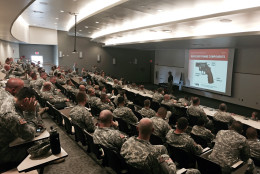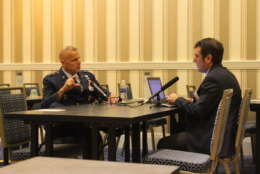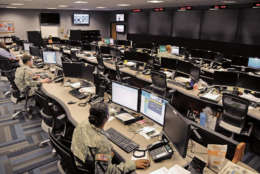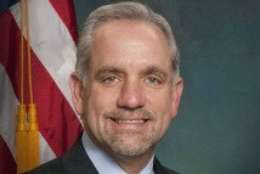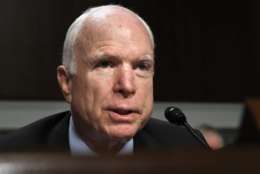National & World Headlines
-
The National Guard is looking to commanders to deal with burdensome training requirements.
October 09, 2017 -
Attorney and government contracts expert Jonathan Aronie of Sheppard Mullins, joins host Mark Amtower on this week's Amtower Off Center, for a wide ranging discussion of Section 801 of the Defense Authorization bill, the future of GSA schedules, and bid protests. October 9, 2017
October 08, 2017 -
As space becomes more of a contested domain, Air Force Secretary Heather Wilson says the Air Force needs to step up its game.
October 05, 2017 -
The Justice Department claims it's too soon to make a decision on whether the military transgender ban will harm transgender troops.
October 05, 2017 -
After merger of three Pentagon IT organizations, the new Joint Service Provider declares full operational capability, becomes part of the Defense Information Systems Agency.
October 05, 2017 -
The Air Force's decision to consolidate base support functions has gone some way toward the goal of reducing headquarters staffs, but officials see its real value in gathering enterprise-level information.
October 04, 2017 -
The Marine Corps wants to add cyber training to boot camp and has new incentives for civilian hires.
October 03, 2017 -
The Defense Department's contracts get hung up at the Defense Contract Audit Agency, where it takes more than two years on average to close a contract.
October 03, 2017 -
In today's Federal Newscast, after the Trump administration sent up 27 new nominations, it announced it was withdrawing two previous ones.
October 03, 2017 -
The Air Force wants retirees to take over some aviation related positions in the service.
October 02, 2017 -
Sen. Jeff Flake wants more insight into how much studies cost at the Defense Department.
September 29, 2017 -
The Defense Department is making some changes to meet its readiness challenges, but it needs more support from Congress and civilian government.
September 29, 2017 -
New rules alter TRICARE's benefit structure, require beneficiaries to sign up during open enrollment.
September 29, 2017 -
After two delays, DoD says it should be able to deliver the long awaited cyber deterrence policy by Sept. 30.
September 28, 2017 -
The Navy says it's writing the next version of its Next Generation Enterprise Network contract so that it can offload email and other services to DISA's forthcoming commercial offering for unified communications, whenever it becomes available.
September 27, 2017

